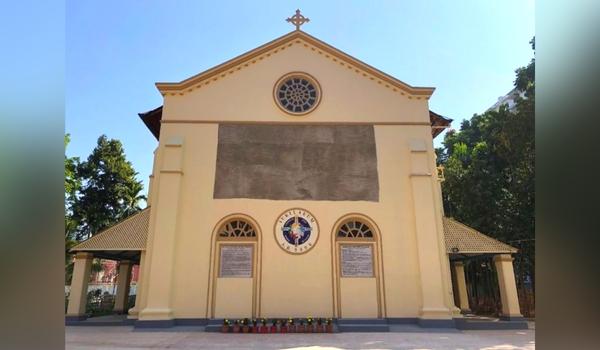
The diocese of Chittagong comprises 17 civil districts of Chittagong,Cox’s Bazar, Bandarban, Rangamati, Khagrachori, Noakhali, Feni, Laxmipur, Bhola, Patuakhali, Pirojpur, Barisal, Jhalakathi, Barguna, Gopalganj, Madaripur and Shariatpur.
Total population is 28,586,492. Ethnic groups include the Boms, Chakmas, Marmas, and Murongs.
Bangla (Bengali), English and tribal languages are used in the diocesan territory.
The early history of the Church dates back to 1537 A.D. When there were Catholics in the Portuguese settlements in areas that now form part of the diocese of Chittagong. The first church was set up in 1600, which now forms Diang and the city of Chittagong.
Father Francesco Fernandez SJ, who came to Chittagong in 1598, who was blinded, tortured and who died in captivity on November 14, 1602, is Bengal’s first martyr. In 1845, Chittagong became the seat of the first Apostolic Vicariate of Eastern Bengal, and later, the administration was transferred to Dhaka. Noakhali was the first place to have the Holy Cross missionaries, who arrived there in June, 1853.
The diocese of Chittagong was canonically erected on May 25, 1927, taking away a major share of the territory that comprised the then diocese of Dhaka. The diocese then comprised Chittagong, Noakhali, Barisal, Gournadi, Narikelbari, Haflong, Badarpur, Akyab, Sandoway, Gyeithaw and Chaugtha and was handed over to La Salette Fathers of the diocese of Akyab in 1937.
The newly-erected diocese of Chittagong was entrusted to the care of the Canadian province of the Congregation of Holy Cross. When the new ecclesiastical province of Dhaka was created in July, 1950, Chittagong became a suffragan of Dhaka. Later in 1952, portions of the diocese of Chittagong which were situated in Assam (India), were detached to form a separate ecclesiastical unit, called the Prefecture of Haflong, and later the diocese of Silchar, which are now called the Dioceses of Agartala and Aizawl.
Citizens elect the parliamentary representatives for the constituencies in the area. Members of ethnic minorities can vote and take part in politics without undue pressure. The city residents have the opportunity to elect their mayor and the Chittagong City Corporation members.
Chittagong is connected to all parts of the country by road and rail, and to some parts by air. Roads connect the city to towns and rural areas in the diocesan territory.
The diocese covers a land area of 44,195 square kilometers comprising of 17 civil districts: Bandarban, Barisal, Bhola, Borguna, Chittagong, Cox's Bazar, Feni, Gopalganj, Jhalakathi, Khagrachori, Lakhipur, Rangamati, Noakhali, Patuakhali, Pirojpur, Madaripur and Shariatpur.
Annual per capita income was the equivalent of $45 as of January 2010. Garment and cement manufacturing, steel re-rolling and dried fish are the main industries of the area. The main agricultural products are rice and jute.
There are many cell phone service providers in addition to government and private landline service providers. Cell phones are growing in popularity, but limited network coverage of the Hill Tracts areas became available only recently.
The literacy rate is 56 percent.
The literacy rate is 56 percent.